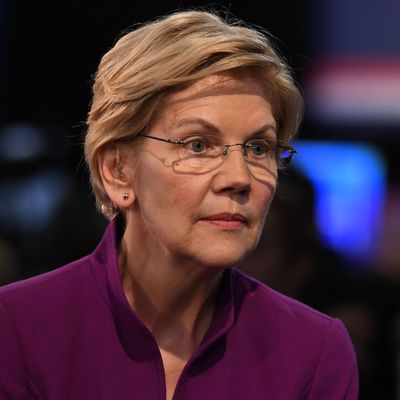
Donald Trump’s quest for an ever-smaller federal government has hit the State Department with particular force. By 2017, Vox reported that the number of career State Department officials — the nation’s most experienced diplomats — had “declined dramatically” under Trump. At the same time, the department had reduced hiring for entry-level roles, effectively shrinking itself. Two years later, vacancies remain a problem for the department and may even exacerbate security threats against its existing staffers.
The State Department isn’t the only department facing a serious vacancy problem under the Trump administration. But if a Democrat defeats Trump in 2020, rebuilding the ranks of the nation’s diplomats will have to be a priority for the new president as part of a broader shift away from Trump’s warmongering. Senator Bernie Sanders has outlined a sweeping foreign-policy vision that “privileges diplomacy and working collectively with allies to address shared security concerns,” as he put it in a recent editorial for Foreign Affairs. And on Friday, Senator Elizabeth Warren released a set of proposals designed to build up the U.S. Foreign Service.
“The Pentagon is nearly 40 times bigger than the State Department — we employ more people to work in military grocery stores than we do Foreign Service officers,” she wrote on Medium. “Too often, our underinvestment in diplomacy and development causes our leaders to default to military action, instead of treating it as a last resort.”
To that end, she says she intends to double the size of the Foreign Service, which would include the opening of new diplomatic posts. She’s also pledged to diversify diplomatic ranks. (As she correctly points out in her proposal, the Foreign Service is extremely white and extremely male, and the recruitment process skews to graduates of elite universities.) Warren pledges to “correct the employment records” of State Department employees fired for their sexual orientation, and adds, “I’ll dedicate recruiting resources to applicants from HBCUs and other minority-serving institutions, women’s colleges, and community colleges. And I’ll double the size of fellowships designed to recruit minority and low-income diplomats.”
This would dramatically reshape the U.S. Foreign Service, and so too would Warren’s final proposal, to “professionalize” U.S. ambassadors. Trump isn’t the first president to rely heavily on political appointees, rather than career diplomats, to fill ambassadorial posts. Ronald Reagan was notorious for it, and so was Barack Obama; Obama’s pick to become the U.S. ambassador to Argentina hadn’t even visited the country in question before his confirmation hearing. (He was, however, a major bundler for Obama, as NPR reported at the time.) The practice doesn’t necessarily lead to disaster, as long as these political appointees don’t enter sensitive positions, but one can argue with some legitimacy that it would be better to defer to career diplomats in all cases.
Warren doesn’t quite go that far. But she does say she would “end the corrupt practice of selling cushy diplomatic posts to wealthy donors,” and appoint “experienced career ambassadors” to “some of the most senior positions in the State Department, including at least one Deputy Secretary position and the Director General of the Foreign Service.” A robust diplomatic corps is only as good as the policies it promotes, but rebuilding the Foreign Service is going to be a necessary plank in any foreign-policy platform that emphasizes diplomacy and negotiation over hostility and military intervention.






























